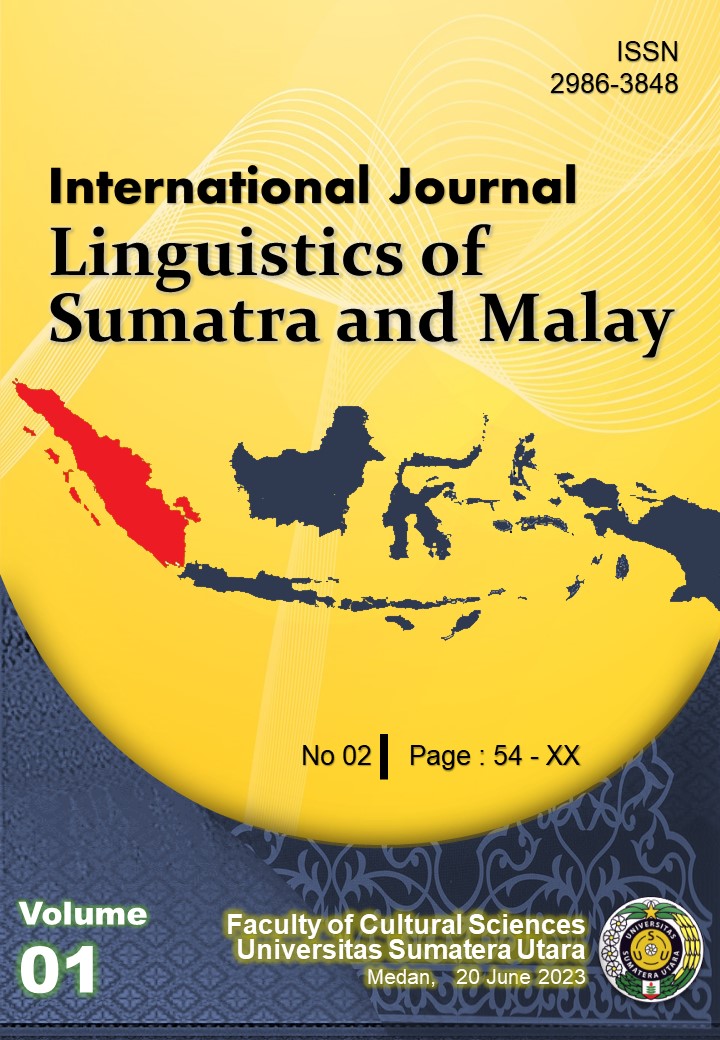Analysis of Errors in Using Passive Sentences by Japanese Language Students at Universitas Harapan Medan
DOI:
https://doi.org/10.32734/ijlsm.v1i2.14310Keywords:
Error analysis, Passive sentences, Japanese languageAbstract
This research analyzed the errors in the use of passive sentences among Japanese language students at Harapan Medan University. Using a descriptive analysis method on test data from students enrolled in the Japanese Language Program in the 2021 academic year, the study found that syntactic errors were the most common. These errors were caused by students' lack of understanding of passive sentence usage, including particles, verbs, and translation. Lapses in errors emerged as the dominant type, resulting from unintentional mistakes or lack of awareness by the speakers. They usually occur in writing due to physical fatigue or rushing during the test. Competence factors were the main cause of these errors, as students had not fully grasped the rules of passive sentence structure, particularly regarding using particles and determining subject and object. The influence of the native language also played a role in the errors, especially in translating passive sentences from Indonesian to Japanese. In conclusion, students face challenges in using passive sentences in Japanese, particularly in syntax and rule comprehension. Efforts are needed to improve their learning, deepen their understanding of passive sentence usage, and enhance their comprehension of sentence structure and its constituent elements.
Downloads
Downloads
Published
Issue
Section
License
Copyright (c) 2023 International Journal Linguistics of Sumatra and Malay

This work is licensed under a Creative Commons Attribution-ShareAlike 4.0 International License.
All articles published in the International Journal Linguistics of Sumatra and Malay (IJLSM) are licensed under the Creative Commons Attribution-ShareAlike 4.0 International License (CC BY-SA 4.0).
This license permits anyone to:
-
Share — copy and redistribute the material in any medium or format.
-
Adapt — remix, transform, and build upon the material for any purpose, even commercially.









